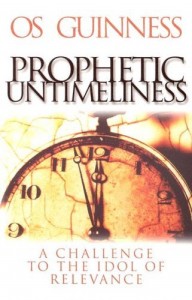Backing into Lent
 One of my regular rhythms is to go back and forth on the subject of running. I run on the treadmill and like it partly because it’s prime reading time, and partly because of the physical effects. But it has a way of creeping toward too much time and too many detrimental effects — lameness being the main one.
One of my regular rhythms is to go back and forth on the subject of running. I run on the treadmill and like it partly because it’s prime reading time, and partly because of the physical effects. But it has a way of creeping toward too much time and too many detrimental effects — lameness being the main one.
I shrug off the warning signals from my body because I feel like I have to; I want to control my weight and think running is the way to do it. It works in a way, but it isn’t healthy by the best measures of health. Eventually I always back off and run fewer miles — for awhile.
Really, my struggle with running is a struggle with how I am made. To lay it down is to give up more than a physical activity; it’s to give up my restless re-making of myself. It’s a release I’ve had to enact before, more than once, as someone who seems always to be restless within my body. At a deeper level I wrestle simply with being at peace with who I am. It seems like I should be over that by now — but, no.
This week I’m cutting back, and thinking the unthinkable: I could lay this dilemma aside once and for all. Instead of a “rhythm,” it could become a closed book — the story of how I found my way off the deep-seated treadmill within. Without meaning to trivialize Lent, I’m realizing that I’ve unwittingly stumbled into the spirit of it through this act of surrender — this returning of authority to God for the way he’s made me, and this act of faith that it’s going to be okay.
I read these words from Frederick Buechner this morning, and they made me feel almost like Lent had overtaken me in an unforeseen, unconventional way:
In many cultures there is an ancient custom of giving a tenth of each year’s income to some holy use. For Christians, to observe the forty days of Lent is to do the same thing with roughly a tenth of each year’s days. After being baptized by John in the river Jordan, Jesus went off alone into the wilderness where he spent forty days asking himself the question what it meant to be Jesus. During Lent, Christians are supposed to ask one way or another what it means to be themselves.
If you had to bet everything you have on whether there is a God or whether there isn’t, which side would get your money and why?
When you look at your face in the mirror, what do you see in it that you most like and what do you see in it that you most deplore?
If you had only one last message to leave to the handful of people who are most important to you, what would it be in twenty-five words or less?
Of all the things you have done in your life, which is the one you would most like to undo? Which is the one that makes you happiest to remember?
Is there any person in the world, or any cause, that, if circumstances called for it, you would be willing to die for?
If this were the last day of your life, what would you do with it?
To hear yourself try to answer questions like these is to begin to hear something not only of who you are but of both what you are becoming and what you are failing to become. It can be a pretty depressing business all in all, but if sackcloth and ashes are at the start of it, something like Easter may be at the end.
(From Frederick Buechner’s Wishful Thinking: A Theological ABC)



3 Comments
GretchenJoanna
This task of Knowing Oneself is not ever completed. Just when you think you’ve figured out something, made progress in giving Things over to God, you discover that you are still at the beginning. God bless you!
Barbara H.
I can’t fathom that Jesus was “asking himself the question what it meant to be Jesus.” He’s the one person who fully knew who He was and what He was meant for. Matthew 4:1 says, “Then was Jesus led up of the Spirit into the wilderness to be tempted of the devil” — a very different purpose.
“This returning of authority to God for the way he’s made me, and this act of faith that it’s going to be okay.” That really does sum up surrender well. I read somewhere once that it’s not surrender itself that’s so hard, it’s the struggle leading up to it.
Janet
Initially I hesitated at that wording too. But I think I see what Buechner is getting at. All of Satan’s challenges were testing Jesus’ identity — testing whether he really was one with the Father, and not about to cave in to the temptation to act independently. At some level the question, “How should I respond to this temptation?” is a “Who am I” question. Our response reveals who we are.